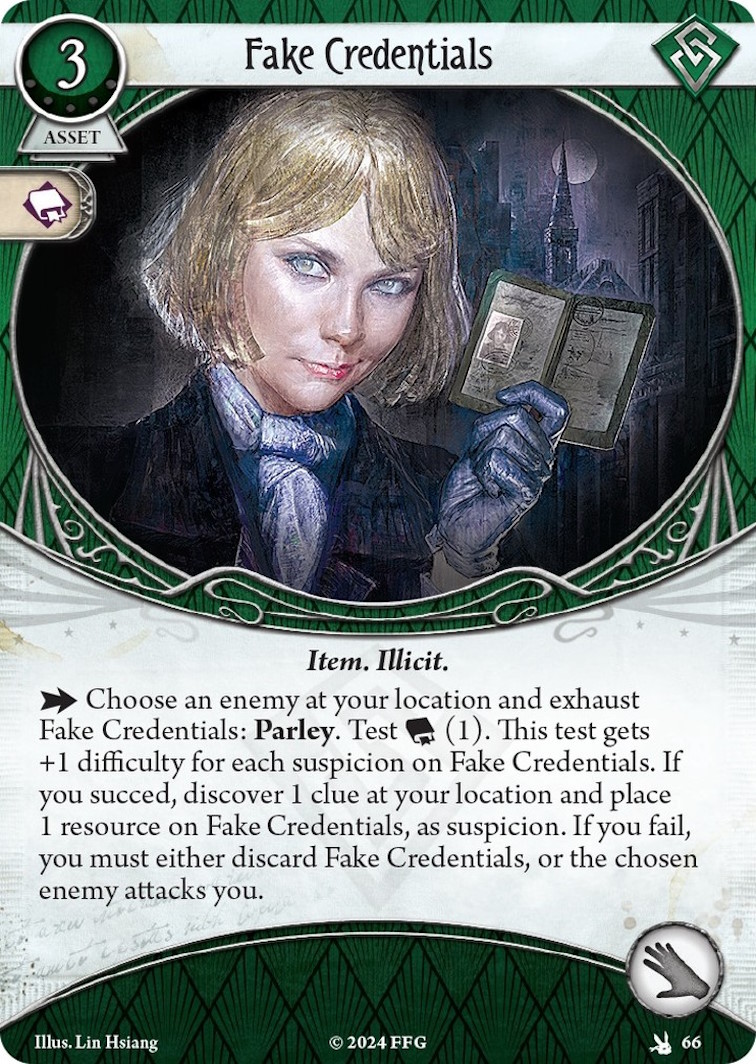
Some small Innsmouth spoilers below. For the context, it was three players going all-in on curse token plays.
I played this "can't move" Rot on turn one during Horror in High Gear, suddenly making the scenario a cakewalk. High chases aren't usually that thrilling when the chasers are several miles behind:) That felt pretty cheesy, especially as it was the fan-made Return to, which fixed some previously known cheesy plays like, for example, Luke+barricade, but could not handle the Rod. Previously in same campaign I've used the "can't attack" Rot on Deep One Bull in the Pit of Despair, which not only eliminated the threat, but also changed usually quite annoying Deep one assaults into very mild "choose and discard one card from your hand" - the Bull was never disengaged, so when the Assault was drawn, the Bull just disengaged and reengaged me. Still needed to clear the other enemies, of course, but all the other non-elites are much more reasonable for scenario 1. Now imagine the same "can't attack" Rot on any non-elite enemy in any campaign when playing alongside Trish. Even easier than the Handcuffs trick. Also, still in the same campaign, I felt like my Olive McBride underperformed, since her intended use was for Eye of Chaos/Armageddon tests, but tapping the Rod is much less risky, even when Olive was upgraded.
Now, my point is, in that campaign I tried the Rod for the first time and had no intentions of breaking or cheesing the game. After that experience I am afraid that there could be much more really broken stuff to be found with the Rod and its Rots.


